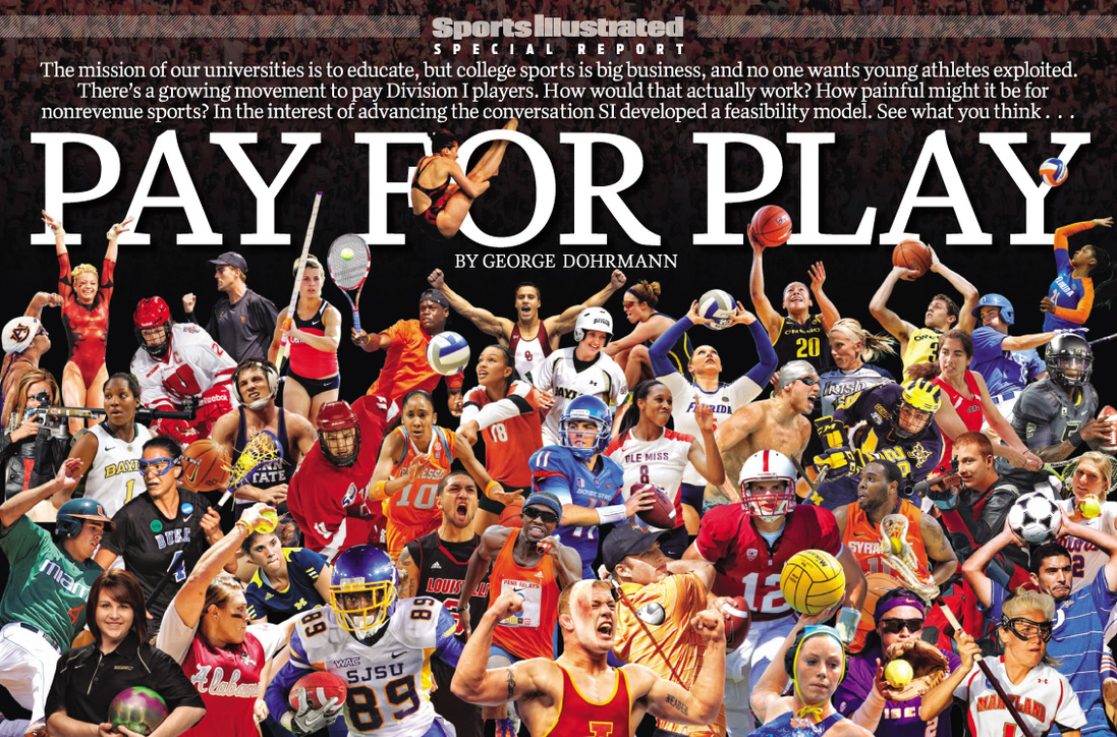(Akiit.com) A lot of young people enroll at a university they think will suit their needs but later realize they’ve made a mistake — maybe because of costs, maybe because of professors, maybe because of a failed romance. Fortunately, they have the option to move on, attending Missouri one semester and Kansas the next, and pursue whatever they went to college to pursue.
But this has not been true for everyone. Any student going to State U to play a major sport such as football or basketball faced a major roadblock. These athletes can transfer to another Division I school, but with a major catch: being barred from competition for an entire season. So, a 19-year-old running back who leaves one football factory — I mean, institution of higher learning — might be 21 before being allowed to play another down.
Until now. Recently, the NCAA drastically modified its rule, granting every student athlete a one-time opportunity to transfer without having to sit out a year. The equivalent of free agency, it aggrieves coaches but liberates the young people playing big-time college sports — who are, after all, the real reason fans show up or tune in to watch.

Already, it’s having an effect. Some 1,500 men’s basketball players, 1,000 women’s basketball players and 2,100 football players have entered the “transfer portal,” which allows coaches at other schools to contact them. It’s a chance for athletes to leave a program that has not lived up to their hopes and seek out another that might be better.
Tennessee linebacker Henry To’o To’o, who led the team in tackles last year, announced that he is leaving for SEC rival Alabama. Oregon quarterback Tyler Shough will get a new team and a new climate at Texas Tech. On the hoop side, the 6-foot-11-inch center Qudus Wahab will need only half an hour to schlep his stuff from Georgetown to Maryland.
Coaches are not cheering. UConn women’s coach Geno Auriemma, who is losing two players from last year’s squad, bristles at the idea that “a kid can just up and leave for no reason whatsoever. Other than, ‘I just don’t want to be here anymore.'”
Coaches, of course, switch schools all the time — and are rewarded with lucrative contracts. Their departures often leave players and alumni at the old school feeling betrayed, but ditching one job for a better offer is as American as a zone-read option. If a young woman doesn’t want to be at UConn, why would Auriemma want to keep her?
Playing a collegiate sport is not supposed to be a job, but at the top level, it is just that — well, except for the part of a job that involves getting paid. Division I athletes are supposed to practice no more than 20 hours a week, but in a 2015 survey by the NCAA, football players reported spending more than 40 hours a week on athletic activities — not counting film study, meetings with coaches and other team obligations. For basketball, the figure was 34 for men and 35 for women.
In exchange, these players get a “free” education — but the demands of their coaches mean that many never earn a degree. In 2019, according to the NCAA, the graduation rate for football players at Louisiana State was 71%, but by the federal government’s count, it was 31%. At Ohio State, the figures were 63% and 45%.
For those who dream of a professional career but are stuck riding the bench, a new school may be the only hope. When Russell Wilson lost his starting quarterback job at North Carolina State, he decamped for Wisconsin, taking advantage of a rule allowing immediate eligibility for players who had earned their undergraduate degrees. He played well enough to be drafted by the Seattle Seahawks — and went on to a standout career that includes a Super Bowl victory.
Not everyone who decides to move on will benefit. Some of those who spurn their existing teams to enter the transfer portal will find no one else wants them. Some who were backups will learn they were backups for a reason. College students sometimes make bad decisions, though, and that should be their right.
If there’s anything a coach loves, it’s players who can spot opportunities during a game and make the most of them. When they use that ability off the field, they deserve a high-five.
Columnist; Steve Chapman
Official website; http://Twitter.com/SteveChapman13









About time. We know NCAA is a billion dollar business now.
Glad the student athlete, will also be able to make a little change on the side.